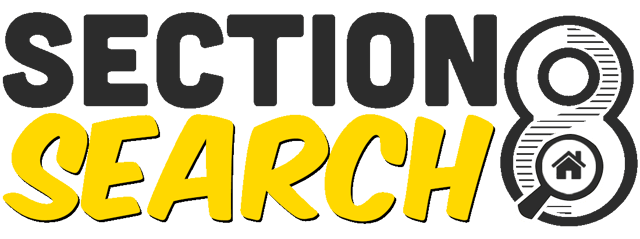
Affordable housing is a term that gets thrown around a lot. But what does it really mean? And how can you get it?
In simple terms, housing is considered affordable if it costs no more than 30% of a household's income. This includes rent or mortgage payments, as well as utilities.
Nonprofits play a crucial role in providing affordable housing options. They work tirelessly to combat homelessness and housing instability, often stepping in where government programs fall short.
Here's what they typically do:
- Develop and manage affordable rental and homeownership opportunities.
- Provide housing counseling and financial education.
- Advocate for fair housing policies and funding.
- Offer supportive services to help individuals maintain housing stability.
Understanding the role of nonprofits in the housing sector is the first step towards accessing the resources they offer. With this knowledge, you're better equipped to navigate the complex housing landscape, and find the best charity for housing that will help you!
Top-Rated Nonprofits for Housing Assistance
There are numerous nonprofits for housing across the country dedicated to providing affordable housing options. Each has its unique mission and approach, but all share a common goal: to ensure everyone has a safe, stable place to call home.
Here are some of the top-rated nonprofits for housing assistance:
Family Promise
Overview: Family Promise is a national organization dedicated to helping families experiencing homelessness achieve sustainable independence. They operate in over 200 communities across 43 states, leveraging a network of about 200,000 volunteers.
Services: Family Promise provides temporary housing, meals, and comprehensive services such as case management and life skills training. They work closely with local congregations to provide shelter and support, helping families transition to permanent housing.
Impact: Annually, Family Promise serves more than 125,000 individuals, with a significant percentage securing permanent housing through their programs.
How to Access: Families in need can reach out to their local Family Promise affiliate for assistance. The organization’s website offers a directory of affiliates across the country.
Covenant House
Overview: Covenant House focuses on providing shelter and support to homeless and trafficked youth. Founded in 1972, it now operates in 34 cities across six countries.
Services: Covenant House offers immediate shelter, food, medical care, and mental health services. They also provide long-term support, including educational programs, job training, and transitional housing.
Impact: The organization serves over 2,000 young people every night and has helped over 1.5 million youth since its inception. In 2022, they provided 1.6 million meals and 730,000 nights of housing.
How to Access: Youth in need can contact Covenant House through their website or by visiting one of their crisis centers.
StandUp for Kids
Overview: StandUp for Kids is a national non-profit organization dedicated to ending the cycle of youth homelessness. They provide outreach services, housing solutions, and support programs for homeless and at-risk youth.
Services: StandUp for Kids offers street outreach, mentoring, educational support, and housing assistance. They focus on providing life skills training and support to help youth achieve self-sufficiency.
Impact: The organization operates in 18 cities across 11 states, and in 2021, they distributed over 22,000 meals and provided extensive support services to thousands of young people.
How to Access: Youth can reach out to StandUp for Kids through their local programs or via the organization’s website.
National Alliance to End Homelessness
Overview: While not a direct service provider, the National Alliance to End Homelessness plays a crucial role in advocating for policies and practices to end homelessness. They conduct research, provide training, and support local non-profits in their efforts.
Services: The Alliance focuses on promoting best practices in housing and homelessness services, providing technical assistance, and advocating for federal policies that support housing stability.
Impact: The organization has been instrumental in shaping national policy and increasing funding for homeless services. They also offer a wealth of resources and toolkits for local organizations working to end homelessness.
How to Access: Although individuals cannot receive direct services from the Alliance, they can benefit from the resources and referrals provided on their website.
Global Refuge
Overview: Founded in 1939, Global Refuge (previously known as Lutheran Immigration and Refugee Service) helps immigrants and refugees, including those who are homeless or at risk of becoming homeless. They offer comprehensive services to ensure these vulnerable populations find stable housing and integrate into their new communities.
Services: Global Refuge provides resettlement services, housing assistance, and legal support. They focus on protecting the most vulnerable, including children and families, and offer tailored support to foster children and assist with family reunifications.
Impact: Since their inception, Global Refuge has served more than 500,000 immigrants and operates in more than 15 states. In 2019 alone, they resettled over 3,800 refugees and assisted with more than 2,400 family reunifications.
How to Access: Individuals can access Global Refuge services through their local offices or by visiting their website for more information on the programs available in their area.
The Role of Housing Charities in Combating Homelessness
Housing charities play a crucial role in combating homelessness. They provide immediate shelter for those in need, often in the form of emergency housing or transitional homes.
Beyond immediate needs, these charities also work on long-term solutions. They help individuals and families secure stable, affordable housing. This can involve financial assistance, advocacy, or direct provision of homes.
Many housing charities also offer supportive services. These can include mental health support, job training, and life skills education. These services aim to address the root causes of homelessness.
Housing charities also play a significant role in policy advocacy. They work to influence laws and regulations that affect housing affordability and homelessness.
In essence, housing charities are on the front lines of the fight against homelessness. They provide both immediate relief and long-term solutions, making them invaluable in our communities.
Accessing Affordable Rentals Through Nonprofits
Nonprofits play a key role in providing affordable rental options. They often own and manage rental properties, offering them at reduced rates to those in need. And with the government Section 8 and HCV programs backlogged, finding a nonprofit for housing is one of the best methods to get the housing you need!
To access these rentals, individuals usually need to meet certain eligibility criteria. This can include income limits, family size, and other factors. Each nonprofit has its own set of criteria.
Here are some steps to access affordable rentals through nonprofits:
- Identify local nonprofits that offer affordable rentals.
- Understand the eligibility criteria for each nonprofit.
- Gather necessary documentation, such as income verification.
- Apply for the rental program.
- Follow up regularly and respond promptly to any requests for additional information.
Remember, patience and persistence are key. The process can take time, but the end result – a safe, affordable home – is well worth the effort.
Navigating Affordable Housing Opportunities
Affordable housing opportunities are diverse and plentiful, but they can be complex to navigate. Understanding the different types of affordable housing is the first step.
Public housing, Section 8 vouchers, and low-income housing tax credits are common options. Each has its own eligibility requirements and application process. It's important to research each option thoroughly.
Here are some steps to navigate affordable housing opportunities:
- Identify the types of affordable housing available in your area.
- Understand the eligibility requirements for each type.
- Gather necessary documentation, such as income verification and proof of residency.
- Apply for the housing program that best fits your needs.
- Follow up regularly and respond promptly to any requests for additional information.
Nonprofits often provide housing counseling services to help individuals navigate these opportunities. They can provide valuable guidance and support throughout the process. Don't hesitate to reach out for help.
The Impact of Accessible Homes on Community Well-being
Accessible homes are a crucial part of any community. They allow individuals with disabilities and the elderly to live independently. This independence can greatly improve their quality of life.
In addition, accessible homes can foster inclusivity within a community. They ensure that everyone, regardless of their physical abilities, can participate fully in community life.
Nonprofits play a key role in promoting and providing accessible homes. They work with builders, landlords, and local governments to ensure housing meets accessibility standards.
Moreover, these organizations often provide resources and support to individuals seeking accessible housing. This can include help with finding suitable housing and navigating any necessary paperwork. It’s even been proven that affordable housing helps make a community a safer and happier place!
Addressing the Emotional Aspects of Housing Instability
Housing instability can take a significant emotional toll. The stress and uncertainty can lead to feelings of fear and anxiety.
Nonprofits understand this emotional impact. They offer more than just physical housing solutions. They provide emotional support and counseling services to help individuals cope.
These services can be a lifeline for those dealing with housing instability. They offer a safe space to express fears and concerns, and to find hope for the future.
In essence, addressing the emotional aspects of housing instability is a crucial part of the work done by housing nonprofits.
Resources and Tools for Social Workers and Clients
Housing nonprofits offer a wealth of resources and tools. These are designed to assist social workers and clients alike.
For social workers, these resources can include directories of affordable housing options. They also provide training materials to help navigate complex housing systems.
Clients can benefit from resources such as financial education materials. These can help them prepare for homeownership. They also have access to personalized housing plans tailored to their unique needs.
Here are some resources to consider:
- Directories of affordable housing options
- Training materials for navigating housing systems
- Financial education materials
- Personalized housing plans
- Legal assistance resources
These resources empower social workers and clients. They provide the knowledge and tools needed to navigate the complex world of affordable housing.
Advocacy and Policy: The Bigger Picture in Affordable Housing
Advocacy and policy work play a crucial role in affordable housing. Nonprofits often engage in these activities to influence housing laws and funding.
They lobby for policies that increase affordable housing options. They also advocate for the rights of low-income individuals and families.
Nonprofits also work to raise awareness about housing issues. They do this through community outreach and media campaigns.
In essence, advocacy and policy work help shape the bigger picture in affordable housing. They ensure that the voices of those most affected by housing instability are heard and considered.
Navigating the Section 8 housing process can feel overwhelming, and that's where Section 8 Search comes in. We're more than just a listing website; we're a dedicated resource designed to make finding housing under the Housing Choice Voucher Program straightforward and stress-free. Our platform offers user-friendly tools to explore listings and waiting list statuses nationwide, all built on official HUD data. We're also passionate about providing clear, helpful information and guidance, empowering you with the knowledge you need to understand eligibility, complete your application, and confidently navigate your housing journey.


.png)
.png)
.png)





.png)
.png)
.png)
.png)
.png)
.png)
.png)



